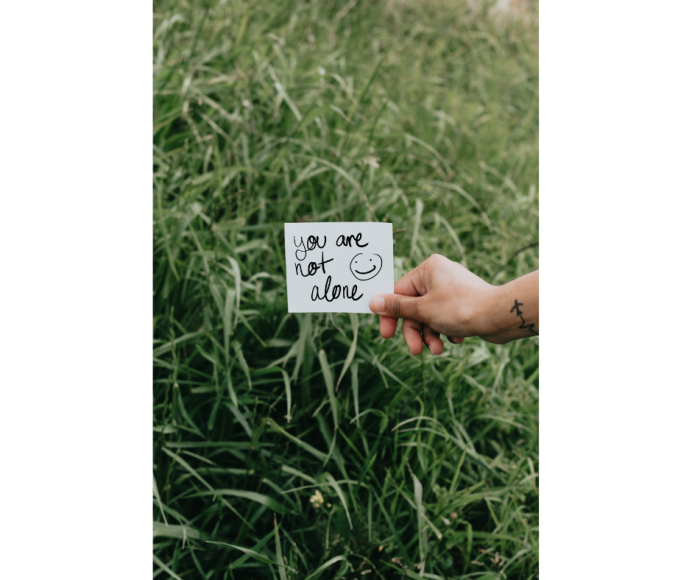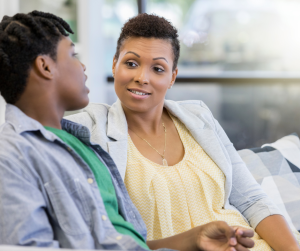As someone who has had their fair share of mental health struggles, I always knew as a mom, I would extend that grace to my children that I always wanted extended to me. Being a mom to a tween has really challenged me in a way I never knew it would, especially when it comes to learning how to help and support them.
I would say the pandemic aftermath really took a toll on our children in many different ways. The burnout was extremely real, and the effects of everything is still ongoing years later. Mental health in children is something we don’t talk about enough. Over the years, I’ve became more in tune with it all as my children get older. Personally, I have always tried to be the superhero to save the day, and sometimes it would make matters worse. It really took me time to learn how to create healthy boundaries for my children and myself.
 Being able to communicate or give cues is something I don’t take lightly. It helps that he trusts me and knows I respect his thoughts. We have great communication and I think that’s important when dealing with a teen or tween that may experience good or bad days pertaining to their mental health. Being a good listener is key to the start of healthy conversations with your kiddos who may be struggling mentally.
Being able to communicate or give cues is something I don’t take lightly. It helps that he trusts me and knows I respect his thoughts. We have great communication and I think that’s important when dealing with a teen or tween that may experience good or bad days pertaining to their mental health. Being a good listener is key to the start of healthy conversations with your kiddos who may be struggling mentally.
A few days out of the week, I incorporate mental health check-ins naturally with my children. While at dinner, or driving to a sports practice, or even just relaxing watching a movie. It’s really just a way to be more in tune with what’s going on, how they may be feeling, if something is bothering them etc. In my case, it also helps me understand the severity of it, and in what ways I can help, and how they would like me to help if at all.
Here are a few questions I try to ask my older children occasionally as a check-in. These are raw answers from my 11-year-old:
1. If you could name the top thing that’s bothering you or concerning you right now, what would it be?
“School. Tests. End of school. Feeling like I don’t have much time for breaks.”
2. When you feel very worked up at school, what helps you calm down?
“I think about what you would say. Food. Being able to listen to my music. Or if I can go take a break to walk down the hallway.”
3. How have you been sleeping lately?
“I sleep good. I sleep better when I know I don’t have school, I’m just really ready for summer. I need a break.”
4. Have you ever felt so sad or stressed that you wanted to hurt yourself?
“What? No. Why’d you ask that? But no, never. If I did I would definitely tell you. That’s serious. I told my school counselor that my friend said that, I didn’t know how else to help.”
5. What brings you happiness?
“Zhuri. Food. Home. My game. Our family. Baseball. Knowing that summer break is almost here. Speaking of summer, can we go to Branson next week?”

Popping in different questions naturally helps with the flow of the responses. It also helps to show them that home is a safe place and we can openly discuss anything that’s bothering them. They also can tell me ways they would like me to help even if it’s me just listening to them navigate through their own problems.
Children are young but they are so powerful and have solutions as well. Allow them to be a part of their journey and include them in conversations as it will help them learn to be a great advocate when they are away from you.










